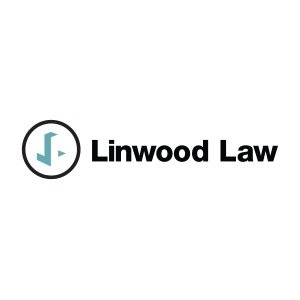Best Asylum Lawyers in Christchurch
Share your needs with us, get contacted by law firms.
Free. Takes 2 min.
List of the best lawyers in Christchurch, New Zealand
New Zealand Asylum Legal Questions answered by Lawyers
Browse our 1 legal question about Asylum in New Zealand and read the lawyer answers, or ask your own questions for free.
- Can I apply for asylum?
- I came here in New zealand 7 April 2023 on work visa as health care (care taker). Now i apply for extension, I have work experience from college in India. But they denied my experience. I don't feel safe in my country.
-
Lawyer answer by Islaw - Expert Lawyers
You arrived in New Zealand on 7 April 2023 on a work visa as a health care (caregiver). You have work experience from India, likely linked to a college or institution. But Immigration New Zealand (INZ) did not accept that...
Read full answer
About Asylum Law in Christchurch, New Zealand
Asylum law in New Zealand, including Christchurch, is governed by international refugee law, primarily the 1951 United Nations Convention Relating to the Status of Refugees, and New Zealand's immigration laws and policies. Asylum seekers in the city may apply for refugee status, granting them legal protection and the basic rights to live and work in the country. Like all of New Zealand, Christchurch is dedicated to holding up the international non-refoulement principle, which prevents the expulsion or return of a refugee to the realm where their life or freedom would be threatened.
Why You May Need a Lawyer
Applying for asylum is a complex process which requires a thorough understanding of both local and international laws. A lawyer specializing in asylum law can ensure that your application is correctly prepared and submitted, boosting your chances of achieving refugee status. Moreover, if your application is initially denied, an experienced lawyer can assist you in filing an appeal and represent you in immigration court. Lawyers can also guide you in compiling the necessary documentation to demonstrate that you meet the legal definition of a refugee.
Local Laws Overview
New Zealand's immigration laws are driven by the Immigration Act 2009, which provides the legal framework for refugees and asylum seekers. While the country upholds the aforementioned non-refoulement principle, it also designates strict criteria for those wishing to qualify for refugee status. Crucially, individuals must be able to demonstrate a well-founded fear of being persecuted for reasons such as race, religion, nationality, political opinion, or membership in a particular social group in their home country. Multi-tiered review systems are also in effect, allowing for the appeal of decisions at different levels.
Frequently Asked Questions
What is the definition of a Refugee in New Zealand?
A refugee is a person who has a well-founded fear of persecution for reasons of race, religion, nationality, membership of a particular social group, or political opinion, and who is outside their home country and cannot or, due to such fear, is unwilling to return to it.
How long does the asylum process take?
The duration of the entire process can vary widely depending on individual circumstances, but it often takes several months for an initial decision to be made.
Is it possible to apply for asylum while already in New Zealand?
Yes, you can apply for asylum while already in the country, regardless of how you arrived or your current immigration status.
What happens if my application is denied?
If your application is initially denied, you can appeal the decision. An experienced asylum lawyer can assist you in this process.
Can my family join me if I am granted refugee status?
Yes, once granted refugee status, you may be eligible to apply for family members to join you in New Zealand under the family reunification process.
Additional Resources
The Refugee Council of New Zealand offers resources and assistance to those seeking asylum in New Zealand. For legal aid or representation, it is recommended that you seek out a lawyer experienced in immigration and asylum law. For mental and emotional support, Red Cross New Zealand provides services to refugees and asylum seekers.
Next Steps
If you are in Christchurch and need help with an asylum claim, contact a local immigration lawyer or legal aid organization. They can help you understand your rights, gather necessary documentation, and prepare for your hearing. Remember, it's crucial to act swiftly and responsibly to maximize your chances of a positive outcome.
Lawzana helps you find the best lawyers and law firms in Christchurch through a curated and pre-screened list of qualified legal professionals. Our platform offers rankings and detailed profiles of attorneys and law firms, allowing you to compare based on practice areas, including Asylum, experience, and client feedback.
Each profile includes a description of the firm's areas of practice, client reviews, team members and partners, year of establishment, spoken languages, office locations, contact information, social media presence, and any published articles or resources. Most firms on our platform speak English and are experienced in both local and international legal matters.
Get a quote from top-rated law firms in Christchurch, New Zealand — quickly, securely, and without unnecessary hassle.
Disclaimer:
The information provided on this page is for general informational purposes only and does not constitute legal advice. While we strive to ensure the accuracy and relevance of the content, legal information may change over time, and interpretations of the law can vary. You should always consult with a qualified legal professional for advice specific to your situation.
We disclaim all liability for actions taken or not taken based on the content of this page. If you believe any information is incorrect or outdated, please contact us, and we will review and update it where appropriate.

















